Maternal Mortality In Georgia & The U.S. By The Numbers
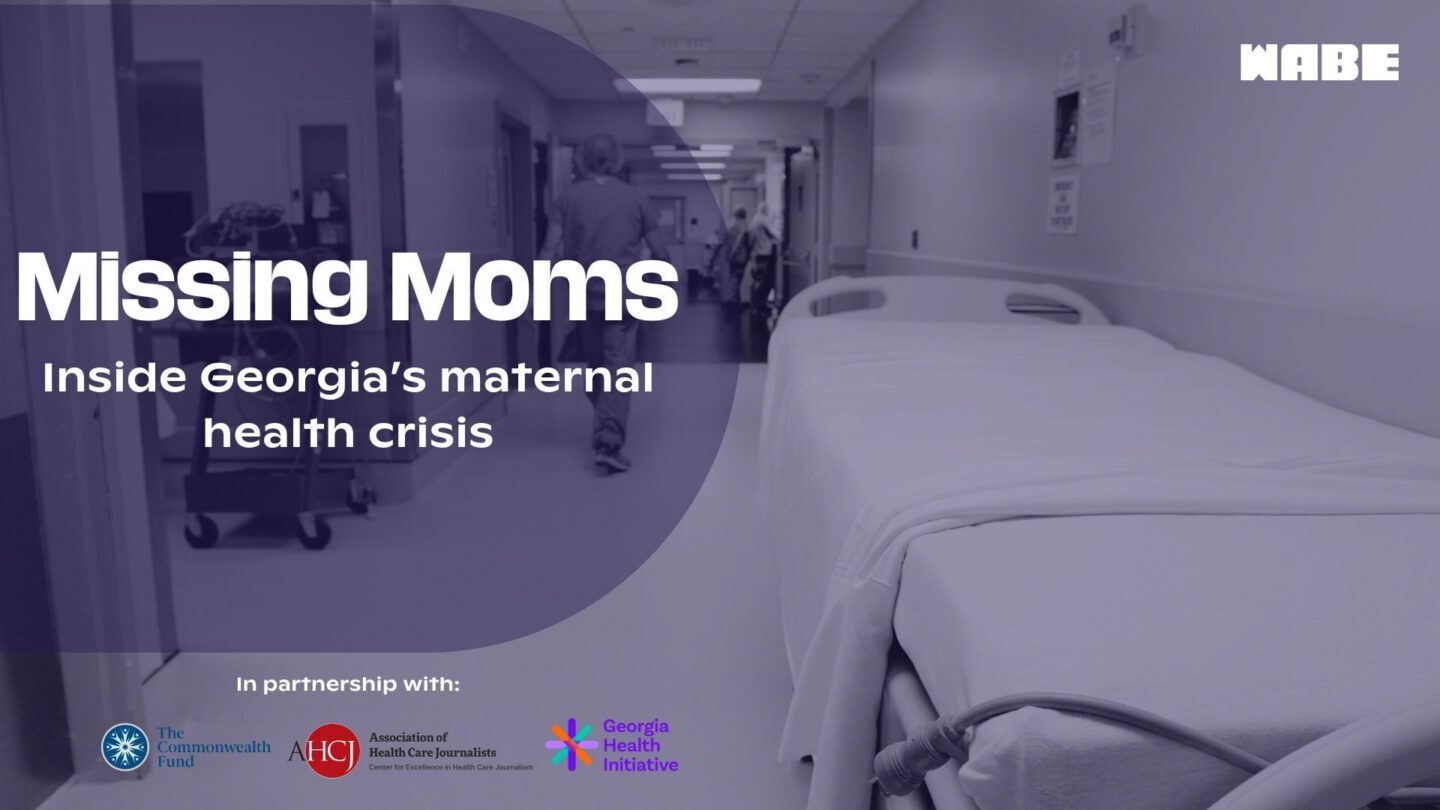
Georgia can be a dangerous place to be pregnant and give birth. The state’s maternal mortality rate is among the worst in the United States, at a time when national rates have also risen. Most maternal deaths are preventable. Statistics help illustrate the crisis.
The national picture
Since the CDC implemented the Pregnancy Mortality Surveillance System in 1987, the number of reported pregnancy-related deaths in the United States increased from 7.2 deaths per 100,000 live births to 17.6 deaths per 100,000 live births in 2019. That’s a nearly 250% jump over three decades.

The reasons for this massive spike are unclear, according to the CDC. They say that the identification of pregnancy-related deaths has improved, but that errors in reported pregnancy status have potentially led to an overestimation of deaths. For example, NPR cited a study showing that the racial disparity remains.
The Commonwealth Fund compared the U.S. maternal mortality rate to 10 other high-income countries around the world. The U.S. had more than twice the rate of pregnancy-related deaths compared to other high-income countries.
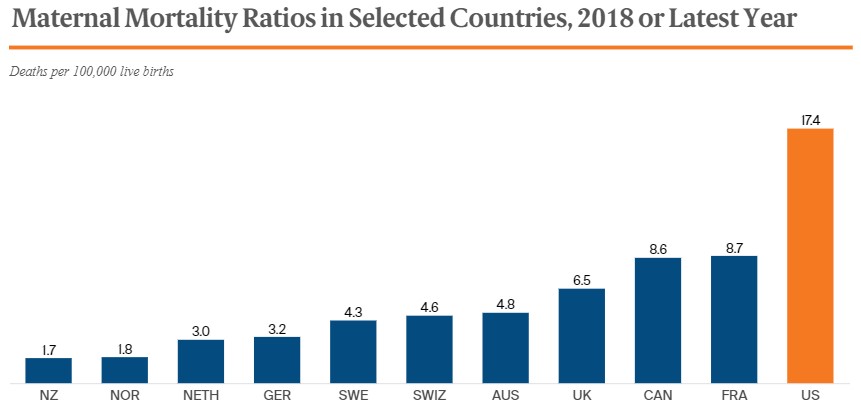
The national picture by race
Black Americans have well over twice the rate of pregnancy-related deaths as white or Hispanic people in the U.S., according to the National Center for Health Statistics.
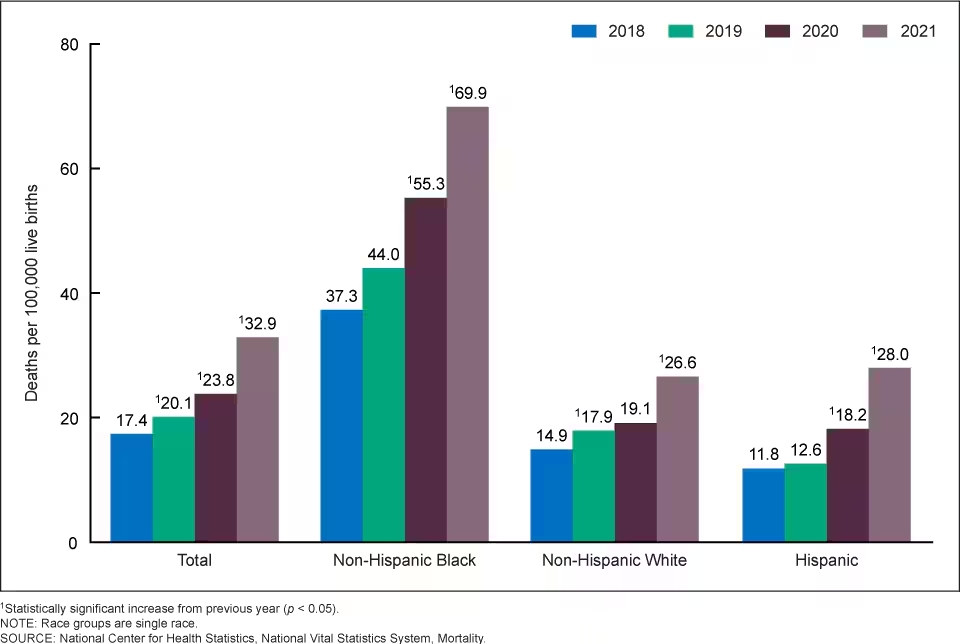
How Georgia compares to other states
Georgia has the seventh-highest rate of pregnancy-related deaths in the U.S., according to nonprofit health policy research, polling and news organization KFF.

Over one-third of Georgia counties are defined as maternity care deserts and about 17% of birthing people in Georgia receive inadequate prenatal care, which are both slightly above the national average, according to the March of Dimes (see interactive chart below).
Overall in the U.S. women travel 9.7 miles to their nearest birthing hospital. Women in Georgia have to travel much farther, according to the March of Dimes:
- In Georgia, women travel 13.5 miles and 19.9 minutes, on average, to their nearest birthing hospital.
- Women living in counties with the highest travel times (top 20%) could travel up to 63 miles and 75 minutes on average to reach their nearest birthing hospital.
- Under normal traffic conditions, 2.6% of women live over 60 minutes from their nearest birthing hospital compared to 1.0% in the U.S.
- 15.8% of women in Georgia had no birthing hospital within 30 minutes.
- In rural areas across Georgia, 61% of women live over 30 minutes from a birthing hospital compared to 13% of women living in urban areas.
- Women living in maternity care deserts traveled three times farther than women living in areas with full access to maternity care in Georgia.
A county-by-county look at access to maternity care in Georgia, according to the March of Dimes.
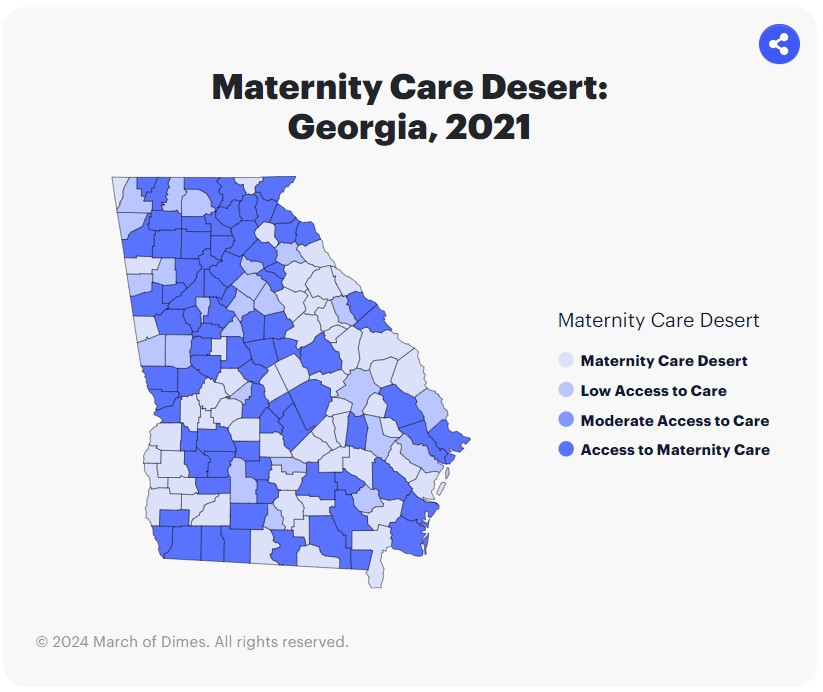
The leading causes of death for pregnancy-related maternal deaths in Georgia, according to the state Department of Health.
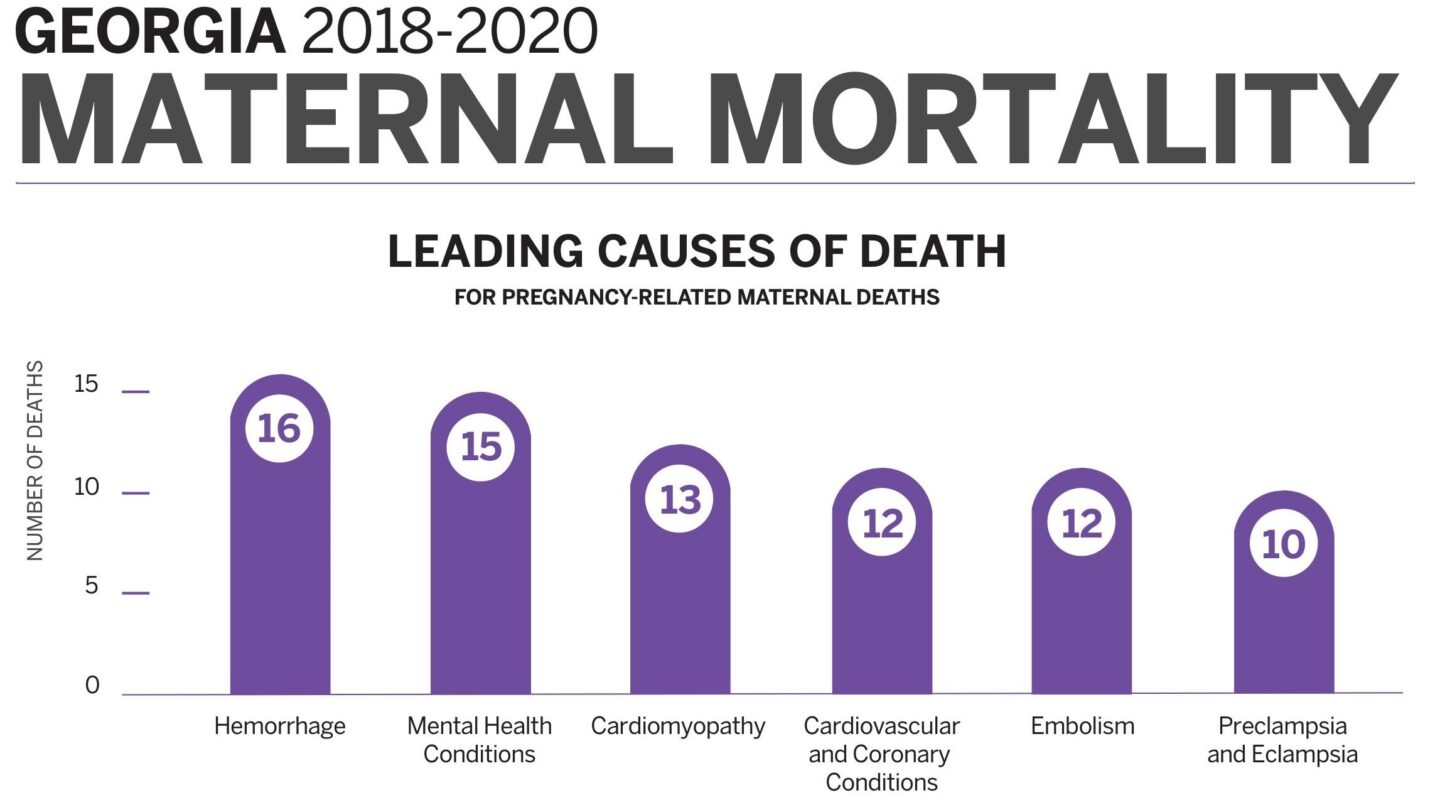
All pregnancy-related deaths attributed to hemorrhage, mental health conditions, cardiomyopathy, cardiovascular and coronary conditions, and preeclampsia and eclampsia were preventable, according to DPH’s Maternal Mortality Review Committee. For pregnancy-related deaths attributed to embolism, 83% were determined to be preventable.